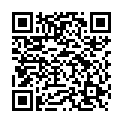|
|
|
| Module code: KIB-CAX |
|
|
2V+2U (4 hours per week) |
|
5 |
| Semester: 3 |
| Mandatory course: no |
Language of instruction:
German |
Assessment:
Written exam, 90 min.
[updated 05.11.2025]
|
KIB-CAX (P223-0006) Computer Science and Communication Systems, Bachelor, ASPO 01.10.2021
, semester 3, optional course, technical
KIB-CAX (P223-0006) Computer Science and Communication Systems, Bachelor, ASPO 01.10.2022
, semester 3, optional course, technical
MAB_19_4.2.1.38 (P223-0006) Mechanical and Process Engineering, Bachelor, ASPO 01.10.2019
, semester 3, optional course, technical
MST2.CAX (P223-0006) Mechatronics and Sensor Technology, Bachelor, ASPO 01.10.2020
, semester 3, optional course
PIB-CAX (P223-0006) Applied Informatics, Bachelor, ASPO 01.10.2022
, semester 3, optional course, not informatics specific
PIB-CAX (P223-0006) Applied Informatics, Bachelor, SO 01.10.2026
, semester 3, optional course, not informatics specific
PRI-CAX (P223-0006) Production Informatics, Bachelor, SO 01.10.2023
, semester 3, mandatory course
|
60 class hours (= 45 clock hours) over a 15-week period.
The total student study time is 150 hours (equivalent to 5 ECTS credits).
There are therefore 105 hours available for class preparation and follow-up work and exam preparation.
|
Recommended prerequisites (modules):
None.
|
Recommended as prerequisite for:
|
Module coordinator:
Prof. Dr.-Ing. Pascal Stoffels |
Lecturer: Prof. Dr.-Ing. Pascal Stoffels
[updated 15.09.2023]
|
Learning outcomes:
After successfully completing this module, students will be able to describe and classify IT tools used in product development.
They will be able to present challenges associated with the use of these tools.
Students will be able to create virtual models using a CAD system, such as Siemens NX, and its basic functions and commands.
[updated 02.12.2025]
|
Module content:
Basics
Gearbox basics
M-CAD
ERP/PPS
PDM/PLM
Digital production planning
Virtual commissioning
[updated 05.11.2025]
|
Teaching methods/Media:
Practical exercises in the computer room with a modern CAD system.
[updated 05.11.2025]
|
Recommended or required reading:
Susanna Labisch, Georg Wählisch: Technisches Zeichnen - Eigenständig lernen und effektiv üben, 2020
Ulrich Kurz, Herbert Wittel: Böttcher/Forberg Technisches Zeichnen, 2010
Sándor Vajna Hrsg. , Andreas Wünsch: NX 11 für Einsteiger - kurz und bündig, 2017
Sándor Vajna, Christian Weber, Klaus Zeman, Peter Hehenberger, Detlef Gerhard, Sandro Wartzack: CAx für Ingenieure, 2018
Jörg Feldhusen, Karl-Heinrich Grote (Hrsg.): Pahl/Beitz Konstruktionslehre, 2013
Herbert Wittel, Dieter Muhs, Dieter Jannasch, Joachim Voßiek: Roloff/Matek Maschinenelemente, 2013
Decker, Kabus: Decker Maschinenelemente, 2018
[updated 05.11.2025]
|


